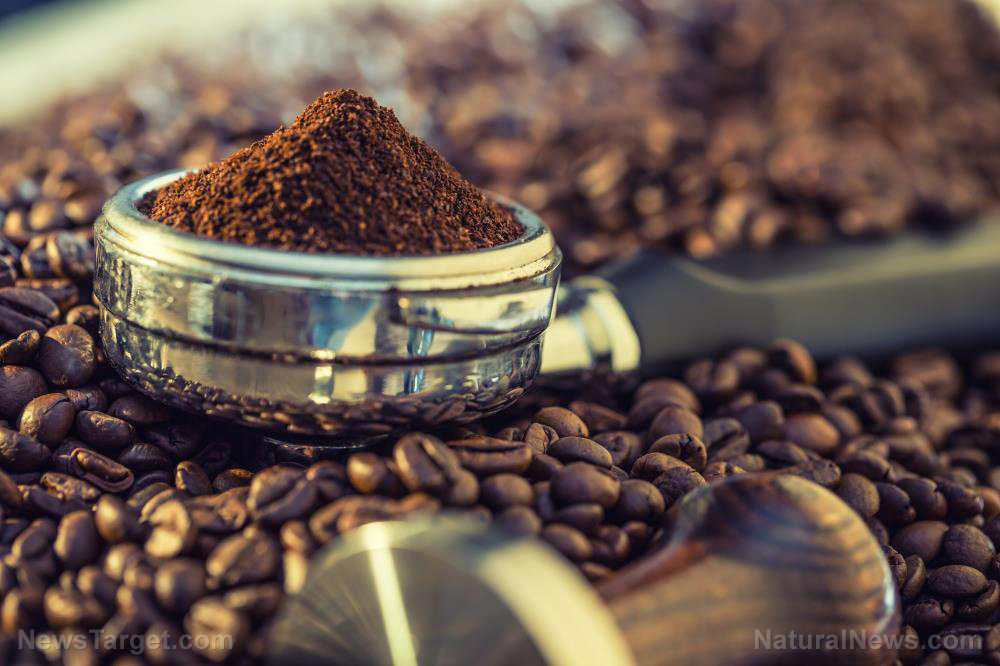Black raspberries found to improve heart health in patients with metabolic syndrome
11/29/2018 / By Rhonda Johansson

A Korean study suggests people with metabolic syndrome to eat more black raspberries to improve their heart health. The results of the study, published in the Journal of Medicinal Food, highlight the importance of nutrition in naturally improving health, especially those already diagnosed with a potentially debilitating condition.
Those with metabolic syndrome are at an increased risk of cardiovascular disease. It is estimated that those with this condition have a 300 percent increased risk of dying from a heart attack or stroke. Metabolic syndrome is also strongly correlated to a higher likelihood of developing diabetes as well.
Thankfully, these risks can be prevented with healthy lifestyle habits. Aside from regular and consistent physical exercise, health experts stress the need for good and nutritious food.
Black raspberries are being recognized as a delicious way to improve heart health, particularly in improving arterial stiffness in patients with metabolic syndrome.
Fifty-one people, all of whom had metabolic syndrome, were observed for this study. Twenty-six of them were given 750 mg of black raspberries every day for 12 weeks. The remaining 25 were given nothing and were used as controls. Researchers measured their central blood pressure, augmentation index (the measure of systemic arterial stiffness), and circulating endothelial progenitor cells (EPCs) such as CD34/KDR+, CD34/CD117+, and CD34/CD133+, before and after the experiment. EPCs are cell surface markers that participate in new vessel formation and play a role in cardiovascular health.
Results showed a significant reduction in both blood pressure and augmentation index and a notable increase in circulating EPCs. Combined, these effects can reduce the risk of a cardiovascular disorder.
It was concluded that black raspberries hold potential in decreasing the risk of a cardiovascular disorder among people with metabolic syndrome. (Related: Why Raspberries are so Good for You!)
On metabolic syndrome
Metabolic syndrome affects around 23 percent of adults globally. It is a cluster of metabolic disorders that place a patient at a higher risk of future cardiovascular disease. Causes of metabolic syndrome include obesity, physical inactivity, age, and genetic factors.
Metabolic syndrome is determined when a person displays three or more of the following:
- Abdominal obesity (Waist circumference of 40 inches or more in men and greater than 35 inches in women.)
- HDL cholesterol of less than 40 mg/dL in men or less than 50 mg/dL in women.
- Triglyceride levels of 150 mg/dL or higher.
- Blood pressure readings that are higher than 130/85.
- Fasting glucose of 100 mg/dL or greater.
Nutritional interventions have been found to be the most effective at treating and even reversing metabolic syndrome. It is generally recommended to follow a Mediterranean-style of eating; that is, consuming more fruits and vegetables, legumes, grains, and healthy oils while eating less meat, cheese, and sweets.
You may likewise opt to increase your intake of dietary fiber. Data show that soluble fiber, like oats and beans, help your gastrointestinal tract, improving cardiovascular parameters. Fiber also makes you feel fuller for longer. This decreases the chances of you gorging on that chocolate cake!
Apart from these dietary recommendations, it is important that you lose weight. Even a little weight loss can have a big impact on your health and the severity of your metabolic syndrome. A modest five percent loss of your body weight can significantly reduce your blood pressure, blood sugar, and cholesterol/triglyceride levels.
Remember that the risk of metabolic syndrome increases with age, so it’s important to start adjusting your health habits as soon as you can.
If you would like to learn more ways to naturally improve your health, visit Health.news.
Sources include:
Submit a correction >>
Tagged Under:
black raspberries, cardiovascular health, disease prevention, heart health, metabolic syndrome, natural cures, natural medicine
This article may contain statements that reflect the opinion of the author
RECENT NEWS & ARTICLES
COPYRIGHT © 2017 PREVENTDIABETES.NEWS
All content posted on this site is protected under Free Speech. PreventDiabetes.news is not responsible for content written by contributing authors. The information on this site is provided for educational and entertainment purposes only. It is not intended as a substitute for professional advice of any kind. PreventDiabetes.news assumes no responsibility for the use or misuse of this material. All trademarks, registered trademarks and service marks mentioned on this site are the property of their respective owners.





















